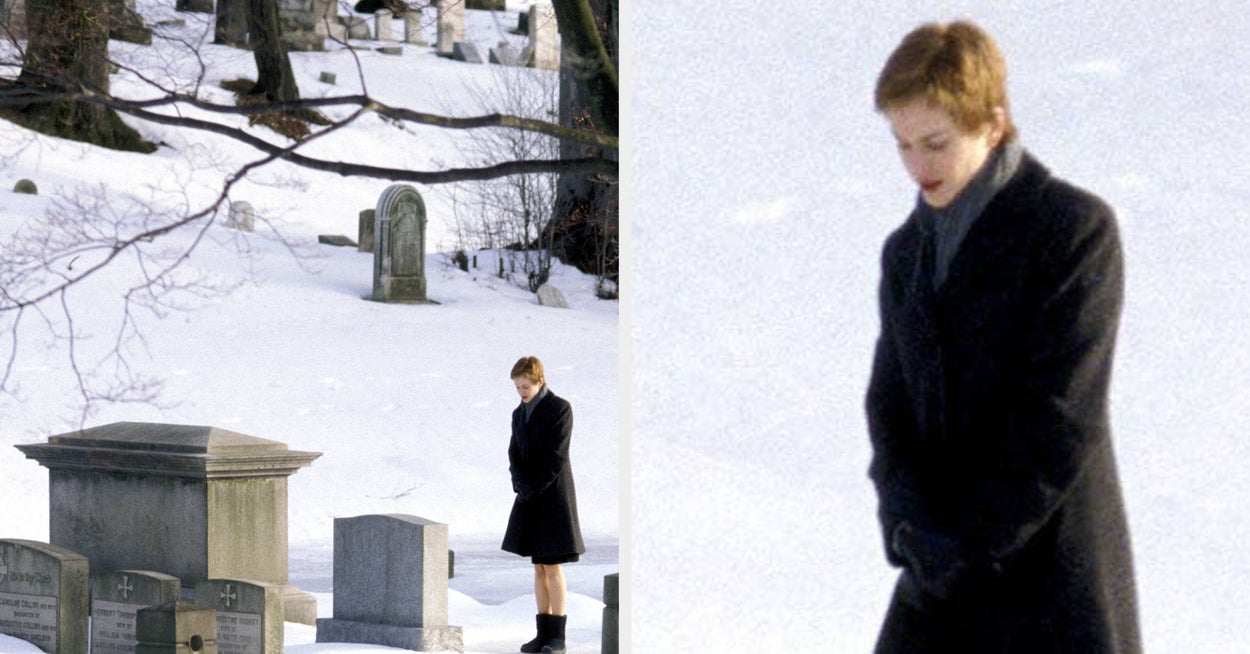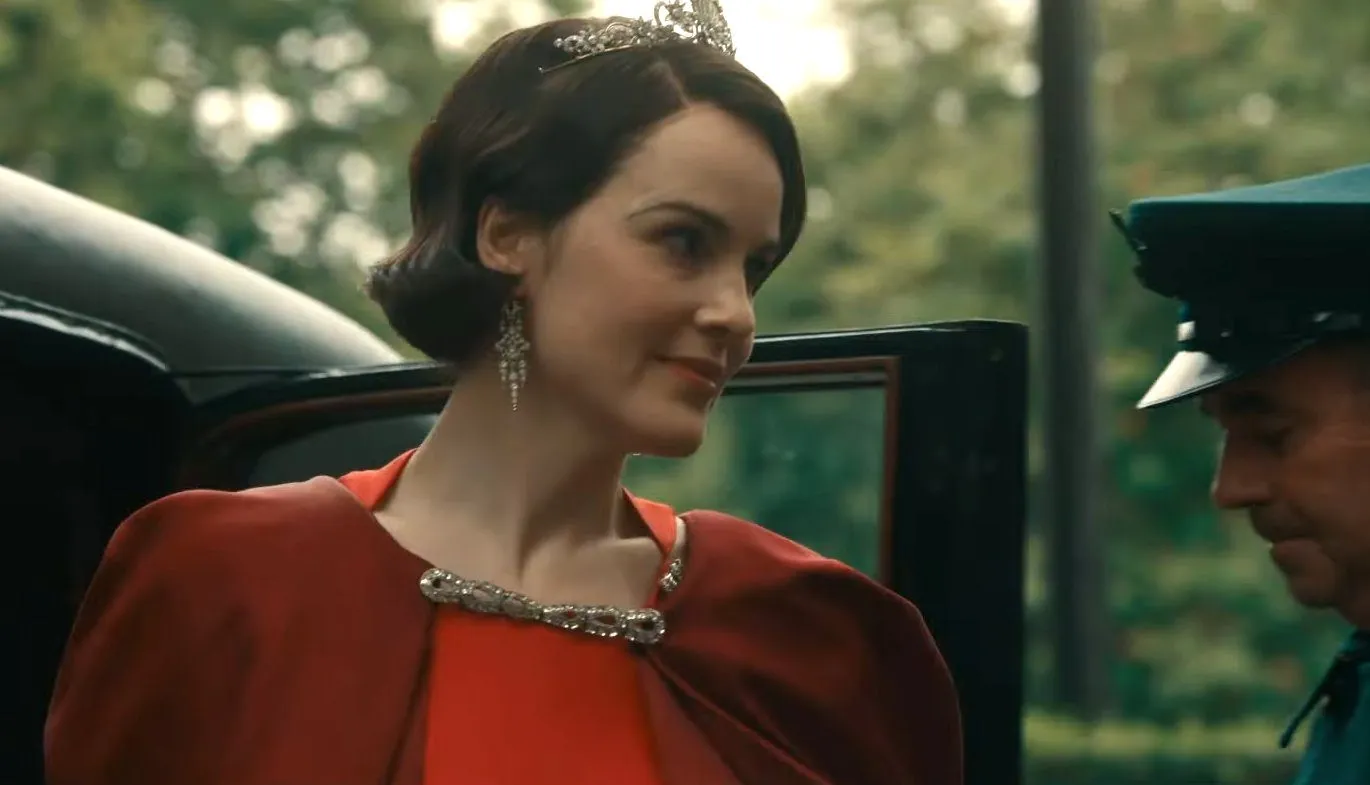
Nobody’s life is free from adversity — but some people get hit harder than others.
We all go through tough times. Nobody’s life is free from adversity — though, let’s be real, some people get hit harder than others.
Over the past year, I’ve shared stories of people going through some of the hardest things imaginable. Here are the most unforgettable ones.
Warning: This post contains suicidal ideation, child loss, rape, and other sensitive subjects.
First, former inmates talked about doing long stretches behind bars:
1. “I served 18 years straight. I’d say somewhere around the seven or eight-year mark, my view of the situation changed. It was no longer prison; it was just my life. Nothing ever changed. Every day was the same. You get into a never-changing routine, and before you know it, five years go by. Then 10, then 15. The real world becomes a fantasy. Something you see on TV, or pictures in a magazine, but it’s no longer real. One day, you look in the mirror, and your hair is receding, and it’s turning gray. In your mind, you’re socially stunted and in a lot of ways childlike, but you’re old. I went in at 18 and came out a 37-year-old man who didn’t know how to do anything. I’d never used a cellphone or computer. I’d never driven a car or filed my taxes. The world was too big, too loud, too fast.”
2. “There are times you can busy yourself with the chores of the day and kind of forget or put things off, but for the most part, for me, it was brutal and devastating. I watched my late teens, 20s, and 30s vanish as I struggled to survive inside. I have seen more violence than the vast majority of the planet, and it was my day-to-day life. The stress can be overwhelming at times, and other times, it is just plain excruciatingly boring. I hope no one has to experience what I went through for over 25 years. It wiped me out, defeated me time and again, crushed my spirit and the will to live over and over again, and I still am not certain how I made it.”
—Joey V., Quora
Read more first-person accounts from inmates here.
Parents discussed the horror of losing a child:
3. “It’s a simple one that changed my life forever, unfortunately. I picked up a shift at work late one night and left my kids with my Ma. It was usually Papa who watched my twins, but he was sick, so I asked Ma. I mean, that’s fine and shouldn’t be a big deal, right? I left, and all was good; I worked several hours, with a few check-ins and no problems. I get home early the next morning to find Ma passed out drunk on our couch with my son Patrick in the tub. He had drowned while Ma got drunk, and I’ll never understand why she couldn’t have waited a few minutes to start/keep drinking. I knew she was an alcoholic, but she’d gone from binging every day to just on her day off over the last several months and was doing really well with not needing alcohol to function.”
4. “I was in complete shock at the sudden death of my 22-year-old son. He left behind a 1-year-old son who does not remember him and a pregnant wife who later gave birth to a daughter. My greatest regret is that I did not offer his organs to save the lives of others. My son was the epitome of good health when he drowned. To save time and distance while crossing a creek at Rock State Park, Maryland, he leaped from one boulder to another, slipped on the mass of the second boulder, and became jammed between the two. It was spring runoff from the mountains, and the water flowed fast and furiously over his head as the boulders held him. His very healthy organs could have saved many lives. Even though the autopsy report said death by drowning, he did not drown. He died of a severe asthma attack because the water was 32° and had not frozen because it was flowing so rapidly. Even his lungs could have saved another life. I will never forgive myself for not offering his organs to others.”
—Diane W., Quora
And people with quadriplegia (a form of paralysis that affects all four limbs and the body from the neck down) shared their experiences:
5. “To be frank, it’s not easy. I’ve been in a wheelchair for more than three years now, and I’m still learning how to manage my daily life as a quadriplegic. One of the challenges we have to deal with are people’s stupid questions. They ask things like, ‘Can you hear?’ ‘Can you understand what I’m saying?’ ‘Does IT work (meaning whether I can get an erection and have sex)? How can anyone ask this type of personal question to someone they don’t know?”
6. “I was a cheerleader, and I was at the top of a human pyramid. We were doing a stunt in a sports event. During a performance, one of my teammates below lost her balance, resulting in me falling and hitting my neck hard to the ground. The fall was quick, and I could feel a huge pain in my neck and even heard the crack of my neck breaking. All my senses became confused; I was in shock, and I don’t remember anything from there.”
“I just woke up the next day in the hospital with a nasal cannula and other medical devices. There were my parents, and I was scared. I could only notice that I couldn’t feel my body and tried to move it, but nothing. We waited a while there while the doctors made some analysis of my condition, and that’s when a doctor told my parents and me that my injuries were severe because I broke my C3 and C4 vertebrae, and I’d never be able to walk again. It was devastating to hear this news.
I wanted to have assisted suicide after I knew I wouldn’t be able to walk again, but my parents didn’t allow me that because they wanted me to live. I told my parents and my sister many times to just kill me in a quick way to end my suffering, but they loved me and wanted me alive; plus, my parents are Christians, and that’s another reason they wouldn’t let me die. Since I couldn’t do anything to even attempt suicide because of the paralysis, I decided to starve and dehydrate myself to death by refusing to eat. My mother desperately tried feeding me by force, but I’d just spit the food out. They had to give me nutrient injections by force because I wouldn’t want to eat. My parents, seeing that I was suicidal, took me to therapy, and the therapist told me it was normal to feel that way but that I could still live because I had other abilities, and after a year of therapy, I changed my mind. I still get depressed sometimes, though.”
—u/Glum_Benefit3704
You can read more testimonials from people with quadriplegia here.
This woman talked about being in an abusive relationship:
7. “I regret being in an abusive relationship for a year and a half. I was a psych major in college and a well-educated, ‘fearless’ woman. I never thought that I would be the one in an abusive relationship; that was something I helped others escape. But I fell for this guy HARD and believed it would be forever. Our first time, he ended up raping me, and I balanced on a precipice, torn between ending things or rationalizing what had happened. I regret choosing the latter and staying another year with a man who didn’t respect me. He enjoyed humiliating me sexually and often yelled and hit me in front of friends. I’m so thankful I finally woke up and showed him the door.”
This woman explained what it’s like being kidnapped:
8. “I was kidnapped eight years ago, and it changed me forever. It’s an experience you wouldn’t want to wish on your worst enemy. I was running some errands with my mom, and we returned home around 9 p.m. In our part of the world, it’s normal to have a guard (ours was unarmed) because robberies are common, but kidnappings aren’t. The gate was opened by a stranger wearing a guard’s uniform. Later, we found out he was one of the kidnappers — he’d beaten up our guard and was wearing his uniform. There were three others, and we found them in the house pointing a gun at my dad’s head — his hands were tied, and I can never forget the look on his face and his body language (total helplessness).”
And this woman deeply regrets not doing something when she had the chance:
9. “I’m a hairdresser, and a friend from elementary school whom I’d lost touch with reached out to me while I was in cosmetology school because she loved my work. I did her hair and her boyfriend’s at her house because I didn’t have a salon job yet. When I eventually got a salon job, they both continued to be my clients. One day, she came to the salon by herself and told me they had broken up, which was a shock. He was very kind, and they seemed to be in love. She then told me she was dating a new guy. She said he wasn’t the type of person she would usually date, that they didn’t have much in common, but somehow it worked. I didn’t want to pry and ask how it worked for them, so I left it alone. A year later, she came back for a salon visit, and she was thin and pale. It was obvious she was using.”
Alcoholics who quit drinking after hitting rock bottom told their stories:
10. “I started drinking when I was 14, struggled for 29 years. I was responsible for so much trauma in the lives of my four daughters. Two were grown and gone before I finally got sober. People would ask why my girls couldn’t come first in my life. I would immediately declare there was nothing I loved more than my kids. I believed that was true, until the day my eyes opened to the truth. My youngest daughter, 13 at the time, stood sobbing in the kitchen asking me why I loved drugs and alcohol more than her and her sisters. It was a watershed moment as I realized everything else came after the alcohol and drugs. I cared more about it than anything else. Once I accepted that truth, things started to change. I’ve now been sober for 15 years.”
—Lisa Herrington
11. “I woke up on my back, on the couch in the lounge, choking on my own vomit. I’m so lucky, I’ve heard so many stories of people dying like this, and the worst of it was that my young son would have found my body. That was enough. It was a long time coming; I didn’t recognize myself or my life anymore. Alcohol had ruined me, and I was completely lost to it.”
12. “Cops found me asleep in my running car at a store parking lot for my third DUI. Looking back, I hate that it took three. I was always a social drinker, and it never affected my work so I didn’t think it was a real issue. But I was facing the reality of being a felon for the rest of my life. I had to spend time in jail. Took years of an amazing public defender’s help plus heavy probation, fines, and counseling. By the time I was in front of the judge, I was 14 weeks pregnant with my daughter and able to avoid the felony. He was very honest that any slip-up could risk CPS involvement. Did probation my entire pregnancy and the first year of her life. I was devastated wearing an ankle monitor for three months after I gave birth, but I did it to myself. Legal issues aside, I can’t ever imagine putting myself or others at risk like that again.”
“Looking at my daughter, I can’t believe I used to be that messy, annoying, falling down, DANGEROUS drinker, but I was. Now I’ll use it to help her make better choices and cope with life better.”
—anonymous
You can read more stories about people who quit drinking here.
People whose marriages ended after 20+ years also shared their stories:
13. “My ex-husband, as I knew him, just…vanished. After 22 years of being a responsible, mature, and fun husband and father, it’s like a switch flipped. He started having affairs, racking up credit card debt, working out incessantly, disappearing for days at a time, and more. He filed for divorce while having an affair with a woman at work who was 25 years younger than we were. (She dumped him three weeks after the divorce was final.) Classic midlife crisis. He was in complete denial that he was hurting anyone. It was very sad and hard to watch.”
—anonymous
14. “Coming up on 20 years of marriage and we’re separating. There is no infidelity or big event that caused it. We just poisoned the relationship from the inside out slowly. We got married very young (19 almost 20) and had a crap ton of issues thrown our way throughout. Poor communication, not following through on promises, resentment, letting our physical selves go — all of it just added up and killed the love. It’s probably the most painful thing I’ve ever had to go through, and I question it every single day. Twenty years is a long time to just walk away from.”
15. “Simply, I outgrew him. He changed significantly through our marriage, from believing in a higher power when we started dating/early marriage to becoming a loud atheist telling me I was brainwashing the kids by taking them to church. I did it all in the marriage — raised the kids, took them to activities, worked, finished both a master’s and PhD, shopped, cooked, and cleaned. I would ask for help and get it for a week or two and then right back to old habits. Once the kids were grown, I’d had enough and filed for divorce. He’s still convinced we’re going to get back together (after three years divorced). Nope, not gonna happen.”
—anonymous
You can read more stories of marriages that ended after 20+ years here.
And we heard from former fugitives who lived their lives always looking over their shoulder:
16. “It’s exhausting, nerve-racking, and dangerous. You have to look over your shoulder for the police every minute of the day, and if you are caught, you could be considered dangerous or armed, which can get you hurt or worse. Quite frankly, I felt relief when I was apprehended and happy to get it taken care of.”
17. “I went on the run for a few weeks back in the ’90s. I was in a stolen car, constantly moving from one state to another with no real destination. Short on money for food and gas. I could not get a room for the night anywhere that didn’t require a credit card and a valid identification. All of my belongings that I needed access to were in that car. I had to wash up at rest stops, filthy public restrooms, or lakes. I slept outside in the elements. The only entertainment I had was the car radio. You cannot do that forever, and they don’t eventually stop looking for you. You cannot get a job without popping up on the radar.”
“After only the first week, the car started breaking down from all the constant driving. The water reservoir was the first thing to go, causing the engine to overheat. Patching it wasn’t working, so I had to stop to cool down the radiator regularly. Eventually, I had to abandon the car with all my property inside. All I had were the clothes on my back at that point and what was in my pockets. I did have a gun and several rounds of ammunition, but every time I resorted to that for a temporary solution, it immediately put me on the radar and forced me to vacate the area before the police closed in on me. I did, however, use it to obtain another car. I was cold, tired, hungry, and in desperate need of a shower by the time the police finally caught up with me.
As much as I wanted to evade capture, jail was sort of a blessing by that point. A shower, a fresh change of clean clothes, a meal, sleeping inside a climate-controlled environment on a mattress with a blanket — jail was a paradise compared to being on the run.”
—Stephen M., Quora
You can read more stories from ex-fugitives here.
Older people talked about the struggles of aging (probably the one adversity on this list most of us hope to experience):
18. “The hardest part of my getting older, now at 90, is being alone. I came from a very large family, easily about 200 when counting both my father’s and mother’s sides. Sadly, there are just two left, my older sister and me. Sometimes, when something happens today that excites me, I reach for the phone to call one or two of the sisters who are gone. And then I remember and put down the phone without dialing.”
“I am pretty conditioned to the facts so though it bothers me just a little, I truly don’t fret over it very much. I just remember to take each day with as much as I can handle, because I never know what can happen next.”
—Lilian Taylor, Quora
“It’s the fact that you aren’t taken seriously anymore. My partner and I have been called ‘cute’ on more than one occasion. People assume I need help walking across a street (on a green light, clear day, and with no cellphone in my hand). I’ve been advised to ‘keep busy’ (until I die?) and treated as if I’m out of the loop technically and socially. Expectations about my mental and physical ability have dropped with no reasonable cause. I find I’m justifying myself constantly (more push-ups in the gym, etc — which, I guess, isn’t so bad).”
People who struggled with gambling addiction told their stories:
20. “It’s shit basically, awful, and only gets worse as time goes on. They say it’s a progressive illness, and it sure is. I went from a job, home, family, girlfriend, and normalcy to sleeping in the local park and facing a prison sentence due to the effects of compulsive gambling.”
“It starts great, a few wins here and there, and it’s exciting, but pretty soon, without you knowing, it takes a grip on you. Denial sets in where you cover the addiction to family and friends because, basically, you don’t want to stop. You start to plan your next gambling adventure, your next session, and you forget your interests and hobbies. You forget your morals and standards as a person, too, as the addiction takes hold, and you simply feed it, never yourself.”
—Liam C., Quora
21. “I have been addicted to coke, Adderall, meth, cigarettes, and gambling. When I found out I was going to be a father, I quit a $180-a-day coke habit. I went from 120mg of Adderall a day to my regular dose. I drew back from the meth before it destroyed me. Slowly laid off the smoking with the help of Chantix. All of these were not terribly difficult to overcome. No detox horror stories. No terrible comedowns. It sucked, but life went on, no problemo. Except gambling…”
We heard from a trans man discussing his difficulties:
22. “I wish I’d come out sooner. I didn’t really know about being trans until I was around 12, but I wish I’d made it more obvious when I was younger that I didn’t feel like a girl. If I had shown that I felt that way before I had the freedom on the internet to explore as I pleased, my parents might’ve seen that nothing had influenced my feelings and would have accepted me more. Also, if I had come out sooner, that would’ve given them more time to accept it and me possibly getting help and hormones sooner. Right now, I’m in some weird limbo where my parents ‘accept’ me, but they aren’t doing anything to help. If we dealt with that limbo before I hit puberty, then where I’m at right now would probably be much better. But it’s too late now. I came out three years ago, and it looks like I’ll have to wait another three to get hormones, assuming I can afford it.”
—Zach, Quora
And lastly, we heard from a Vietnam veteran:
23. “After a year in Vietnam, I came home and met a woman that I really grew to love, and I ended up marrying her. But without realizing I had PTSD, I pushed her and our sons away by drinking and staying away from home so much that she left me. Eventually, my sons also left me, and now I have no relationship with any of them.”



